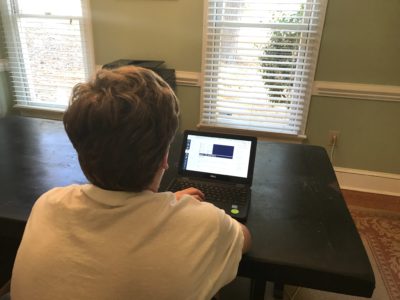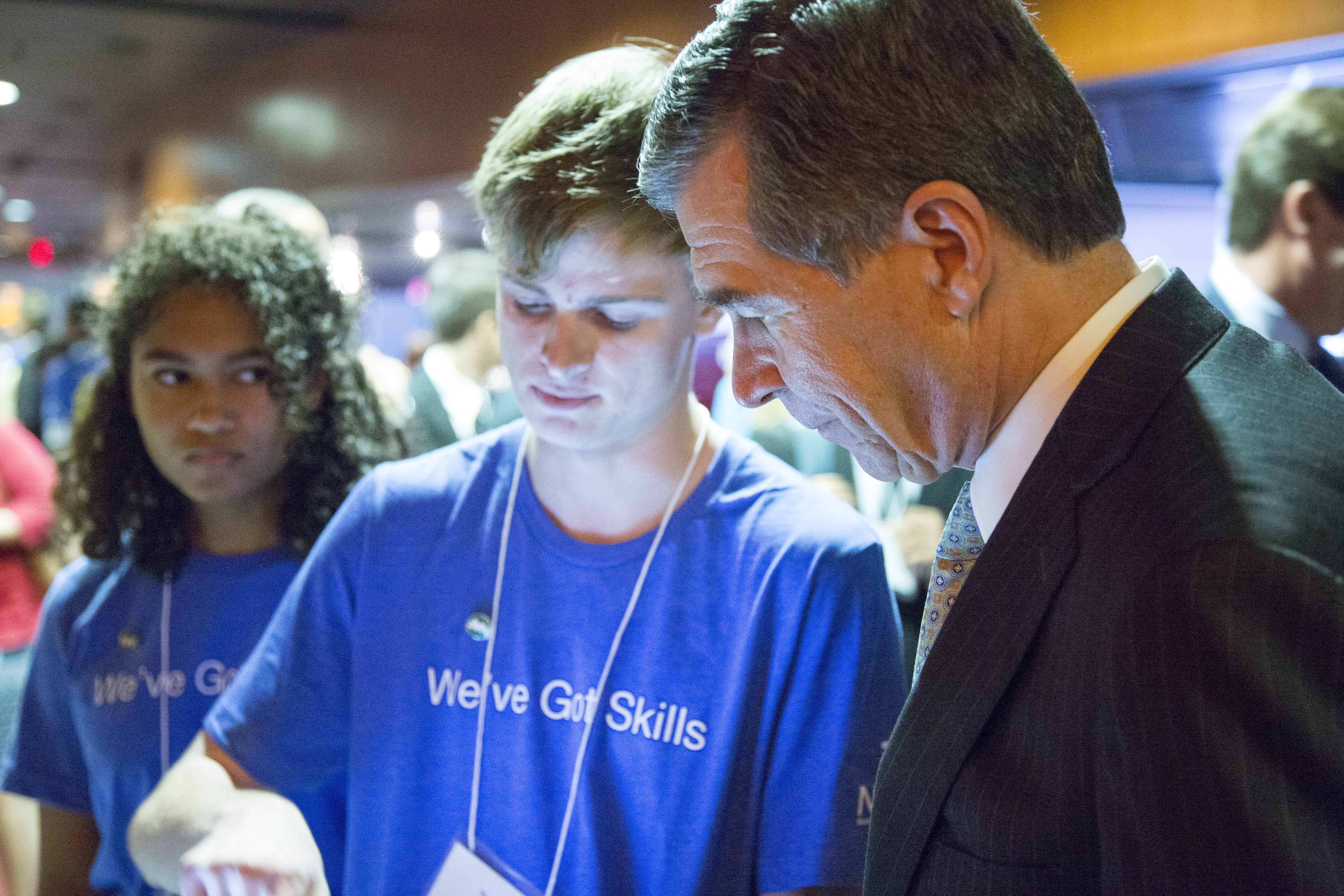Every day we hear from our corporate members about the challenges they face finding workers with the right skills for a range of jobs. These are businesses from across the state of all sizes and in every sector.
It is time to start thinking about education and workforce as a partnership, because the two depend on one another for success. At the NC Business Committee for Education, (NCBCE), a nonpartisan educational nonprofit that has been in the Governor’s office for over 34 years, we are working to make sure that all students have access to real-world, work-based learning. Work-based learning exposes students to business settings from an early age and gives them the relevant industry knowledge, skills, and experiences to prepare them for good jobs.
Earlier this month at NCBCE’s Annual Meeting, 57 students from 15 schools across North Carolina showed the Governor and corporate leaders from across the state what work-based learning looks like in action. Students from Cary High School’s Culinary Academy helped prepare lunch, Broughton High School’s Hospitality Academy students helped serve the meal, and students from Washington High School in Beaufort County worked alongside the professional AV team during the program. Students from Heritage High’s special education class brought their mobile store and sold shirts to the guests and two students from A.B. Combs Leadership Magnet gained valuable experience by introducing the governor and Secretary Machelle Sanders. Southeast Raleigh High students brought their robot that could throw a Frisbee, and students from Enloe High, Cox Mill High in Concord and Olympic High in Charlotte showed off their national award winning apps. These students were impressive and the knowledge and skills they honed through work-based learning experiences was inspiring. Every student in North Carolina should be afforded similar opportunities for growth.
The good news is this type of academic acceleration is achievable and does not come with a big price tag. It is as simple as local businesses opening their doors to students and offering exposure to what happens in the workplace.
NCBCE’s Students@Work program was launched eight years ago and allows middle schoolers to leave their traditional classrooms for one day each spring and experience real-world, professional work environments. Last year, more than 34,000 middle schoolers from across the state participated in this work-based learning program that promotes career awareness. We would like to get more businesses from across the state involved by joining us in this important program next year.
We also need to do more to connect students in high school to internships and apprenticeships. The NCBCE meeting also featured a panel on work-based learning that included registered apprentices from GSK and Buhler Aeroglide. Registered apprenticeship is a great solution to North Carolina’s skills gap in middle skilled jobs. Students can work and learn on the job while going to community college. At the end of the apprenticeship, the student has skills necessary for work and a degree that has been paid for. More businesses need to get involved in these programs, and educators need to make students aware of the opportunities.
There are many ways that leaders in business and industry can get involved in work-based learning. In addition to participating in Students@Work or the registered apprenticeship program, you can sponsor high school interns, host students for job-shadowing, participate in Career Day at your local high school, assist teachers in work-based learning projects or host a teacher extern through NCBCE’s Teachers@Work program.
Work-based learning has a ripple effect. It sparks an interest, and with robust business involvement and strong teacher and career counseling support, that spark can become a fire. Work-based learning connects dots that traditional curriculum cannot. These experiences are important for students, but also for workforce development. The message to business is clear — you cannot wait for your workforce to come to you. Business and industry must help in growing their workforce. Work-based learning can help bridge this divide between education and our workforce.
Recommended reading




